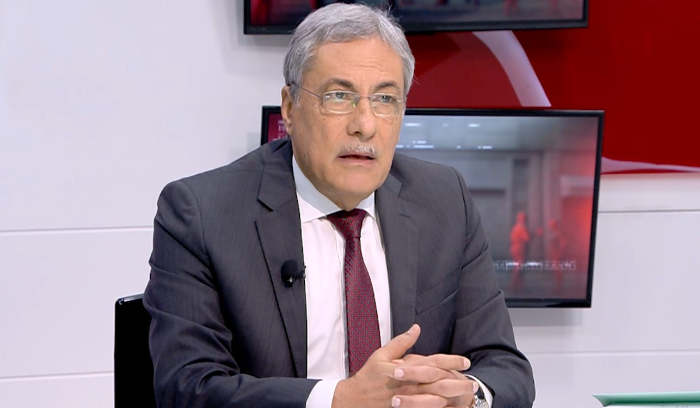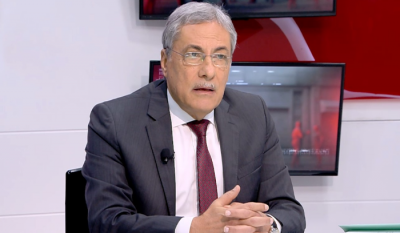The Minister of Justice in the caretaker government, Henry Khoury, denied that the indictment against the Governor of the Central Bank of Lebanon, Riad Salameh, obstructs his case abroad, considering that this does not prevent European judiciary from indicting him if warranted. He confirmed that foreign courts can take measures and decisions based on the findings of their investigations. In an interview with Al-Hurra TV, when asked if it is legally permissible to extend Riad Salameh's term if the political authority desires it despite him being an indicted person, he replied: "A person is not convicted until a ruling is issued against him. However, politically, we have heard from several officials and political teams asserting that there will be no extension for the Governor of the Central Bank."
Regarding the legal steps that should follow the indictment of the Governor of the Central Bank, he clarified that the file is now before Judge Charbel Abu Samra, who is in charge of the file and will conduct the necessary investigations.
On the possibility of the European judicial delegation returning to Lebanon soon, he responded: "I learned they will visit Lebanon in March, but the possibility of continuing what they started has not been determined yet based on treaties, and the state can inform the European judiciary that it is conducting a local investigation and awaiting the results of that investigation. Lebanon could also refrain from informing them about the Lebanese investigations and prevent their interference."
He considered that the request by the Public Prosecutor, Judge Ghassan Oueidat, to Judge Ghada Aoun to cease her measures concerning banks was based on a clear and explicit legal text, specifically Article 751 of the Code of Civil Procedure, and so far there are no contrary interpretations.
Khoury explained that the demands of the delegation fall within the reforms required by the IMF before it begins to provide us financial support, and discussions are ongoing regarding the Lebanese position, with our role being to explain matters, but there is no doubt that the primary role belongs to legislation and the Parliament. He confirmed that "a report will be issued by the IMF delegation summarizing the state of the judiciary, and we will discuss it with them and provide our position on it."
Regarding political interference in the judiciary, he believed that "it depends on the immunity of each judge. However, there is a high percentage of judges who are not affected by political interference." He pointed out that "politics has intruded significantly into the cases of the port explosion and banks, perhaps because the investigating judge and other judges found the involvement of some politicians in these issues."
On what is needed to advance the port investigation file, he stated that "first, it is necessary to complete the appointment of the heads of the Court of Cassation to complete the quorum of the General Assembly; second, to resolve the requests for recusal submitted before the Court of Cassation against Judge Tarek Bitar."
In response to a question about whether the appointment of an investigative judge to investigate Judge Tarek Bitar concerning the complaint filed by Judge Oueidat is imminent, he answered: "The Judicial Council has not yet taken any position in this regard." As for Judge Bitar's complaint against Judge Oueidat, he noted that "many questions arise here because the indictment against the Public Prosecutor has specific procedures as stipulated in the Code of Criminal Procedure."
Khoury denied that "the threats from Hezbollah, which threatened to remove Bitar, are the obstacle to the port investigations," indicating that this case had an investigation before the Public Prosecutor, which was found not to be as serious as was discussed, according to what he learned from the Public Prosecutor.
He continued: "Lebanon could benefit from the investigations of the British High Court, which issued a ruling against the Savaro company in the case of the ammonium shipment that exploded at the port, and the British court may have obtained facts needed for the Lebanese file, which is very helpful, and perhaps what the British court was able to investigate, Lebanon could not investigate."
To those wondering about the role of the Minister of Justice, he stated: "I am not a judicial authority to pass judgment on decisions issued by the judiciary; I monitor whether the judicial performance is correct and report it to the inspection or the Judicial Council. I do not have the right to intervene in investigations; I only obtain the result, nothing more. And whoever wants to give me a greater role should amend my powers in the Parliament."
He asserted: "The government should not extensively handle affairs in a caretaker capacity as is currently happening, and what is approved today in Cabinet meetings can be passed through circular decrees, and the government's meetings today are illegal."




